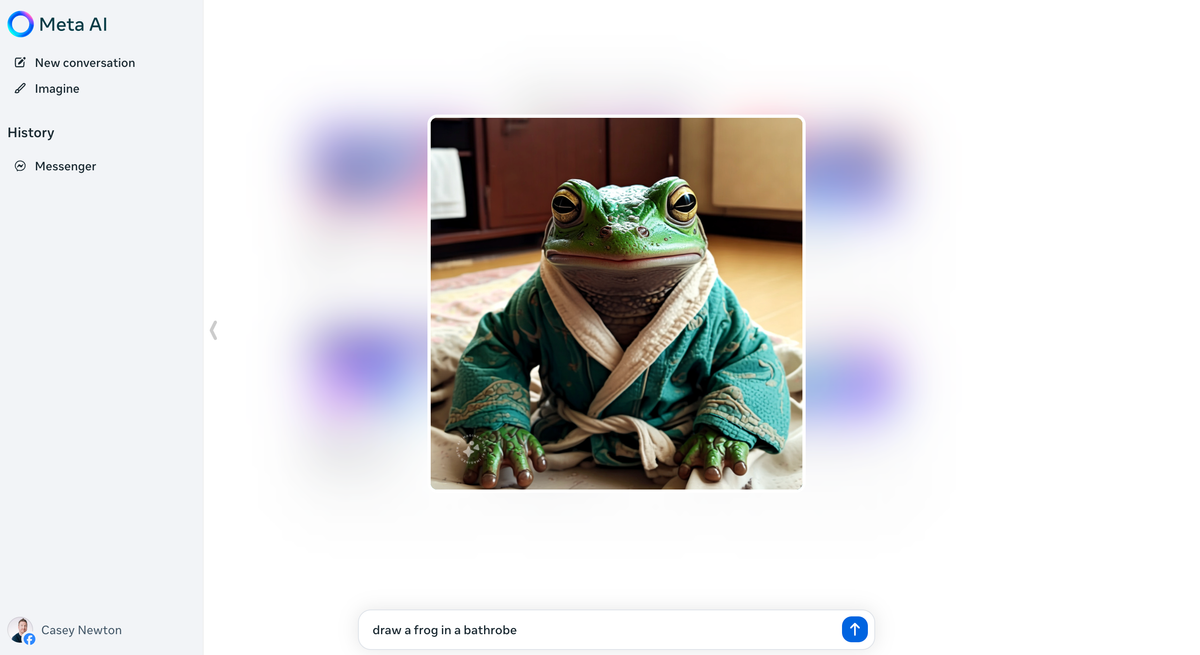A shorter one this week as all my time is being taken up with Digital Works Conference stuff - it's next week!
The art of the turnaround
The brilliant Clare Reddington will be our closing keynote at next week's Digital Works Conference in Leeds.
In this article in Arts Professional, Clare outlines the 5 guiding principles that the team at Watershed have followed which saw them turn a £250,000 deficit into a £150,000 profit.
"There is still work to do, and success isn’t only down to us. There were external factors at play, and we couldn’t have done it without our audience’s support and loyalty. But we want to share our ‘rules’ - or guiding principles - that have informed Watershed’s approach to the turnaround."

The invisible seafaring industry that keeps the internet afloat
One of my best friends works in the shipping industry.
Whenever we catch up he's inevitably got some ridiculous story about an industry that, as he regularly points out, has changed very little over the last 300 years.
This article in The Verge looks at how this very old-fashioned industry is responsible for keeping the modern world connected by monitoring and maintaining the undersea cables that the internet relies on.
"In the family tree of professions, submarine cable work occupies a lonely branch somewhere between heavy construction and neurosurgery. It’s precision engineering on a shifting sea using heavy metal hooks and high-tension lines that, if they snap, can cut a person in half."

Those Who Do Not Learn From Clubhouse Are Doomed To Repeat Clubhouse
Clubhouse, in case you've forgotten (I don't blame you), was the audio-only app that launched during the pandemic, got lots of hype from Silicon Valley folks, a spike in user numbers, and a valuation of $4bn before deflating, losing users and shedding most of its staff.
Anyway, undetered by this cautionary tale the latest frothy, audio-only app which is being hyped by lots of Silicon Valley folks is called Airchat. Ryan Broderick looks at the app in the latest issue of his Garbage Day newsletter.
It's always interesting to keep half an eye on the new platforms that emerge, and to be aware of some of the...non-mainstream groups that may be attached to them in one way or another.
"The app is already using an AI to clean up users’ voices and Ravikant, in a conversation on the app, said they don’t plan to train AI models with user content, but they might train a model to make better audio enhancements. Uh huh. Oh, also, Bloomberg notes that OpenAI’s Sam Altman was an early Airchat investor. Though, I doubt Airchat users will care about that, seeing as how one of the largest communities on the app is for the e/acc “movement,” or “effective accelerationism,” the AI-evangelist splinter group that wants to use AI to blow up society."
How Meta is paving the way for synthetic social networks
The latest edition of Casey Newton's Platformer newsletter looks at Llama 3, Meta's recently announced Large Language Model.
"On Thursday, the AI hype train rolled through Meta's family of apps. The company's Meta AI assistant, a ChatGPT-like bot that can answer a wide range of questions, is beginning to roll out broadly across Facebook, Messenger, Instagram and WhatsApp."
What's interesting is not, perhaps, how Llama 3 could be compared to leading tools such as ChatGPT to generate content based off prompts. But instead how Meta may push this technology out across its products, and how that will change the nature of interaction on these platforms.
"No one wants to talk to the Dungeons & Dragons chatbot that looks like Snoop Dogg. But they very well might want to talk to the Snoop Dogg chatbot in Snoop's actual Instagram DMs. And soon, they may have that chance.
Instinctively, we might assume that people will hate this sort of thing. And yet the success of companies like Character.Ai and Replika — to say nothing of the rise of Shrimp Jesus on Facebook itself — suggest synthetic chats and media are about to become hugely popular.
The first era of Facebook was for talking with friends and family. The second, TikTok-influenced era of the company is more focused on content from creators and other people you don't know.
This week, we got a glimpse of the era yet to come: one where we interact regularly with both people and bots — perhaps not even always knowing, or caring, which one we are talking to."

Theatr Clwyd - A Vision for the Future
My pal, Lucy, is a very talented theatre designer. Through her studio, Studio Three Sixty, she also does a lot of work with cultural organisations exploring new ways of using venues, engaging with audiences, and working with communities. She's done interesting work in the past with Paines Plough and is currently working with Bradford City of Culture 2025.
In this short but inspiring post she writes about the work she is doing with Theatr Clwyd in Wales:
"We want to fill the whole building with artists, and there will be opportunities for ceramicists, painters, installation designers, musicians, writers, poets and textile artists to come together and work with the community through an ambitious range of projects. Our public art strategy is driven by three themes for the new building; community, sustainability and joy, all of which sit at the centre of what drives this building, organisation and team. The building will also be a centre of excellence, a beacon for world-class public art."

Instagram makes more money from ads than YouTube does, and it has for years
More from The Verge, this time on how recent court filings have revealed the staggering amount of money that Instagram makes from ads, and has done for ages.
"At $32.4 billion for 2021 alone, that’s even more than YouTube, which pulled in $28.8 billion in the same year. Business Insider previously pointed out the lead it has over Google’s video unit, and mentions that YouTube gives up 55 percent of each advertising dollar it makes to content owners who upload videos while Instagram coughs up a lot less."
/cdn.vox-cdn.com/uploads/chorus_asset/file/23904517/VRG_Illo_K_Radtke_STK070_Instagram_2.jpg)
What If Your AI Girlfriend Hated You?
This article in Wired opens with "It seems as though we’ve arrived at the moment in the AI hype cycle where no idea is too bonkers to launch."
That opening, combined with the headline gives you a pretty good idea of what will follow.
"The app offers a variety of situations where a girlfriend might ostensibly be mad and need “comfort.” They include “You put your savings into the stock market and lose 50 percent of it. Your girlfriend finds out and gets angry” and “During a conversation with your girlfriend, you unconsciously praise a female friend by mentioning that she is beautiful and talented. Your girlfriend becomes jealous and angry.”"

Rats driving cars
A recent study showed the benefits of 'enriched environments' on the stress levels of rats. Specifically, the scientists at the University of Richmond taught the rats how to drive small cars.
Taking inspiration from this study, the owners of two pet rats (Kuzko & Kronk) who live in British Columbia, decided to see if they could also teach their rats to drive.
And they did.








